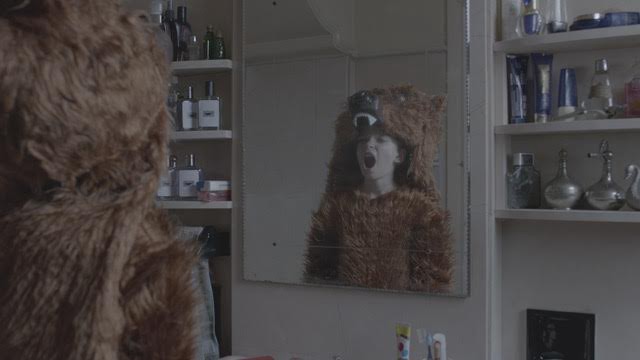Elina Psykou’s first feature, “The Eternal Return of Antonis Paraskevas,” won the Works in Progress Award at the Karlovy Vary International Film Festival in 2012 and premiered at the Berlinale Forum in 2013. Psykou is currently researching her first documentary, “To Live and Die in Europe,” and writing her third feature.
“Son of Sofia” will premiere at the 2017 Tribeca Film Festival on April 21.
W&H: Describe the film for us in your own words.
EP: A boy who doesn’t yet know what life can be. A woman who tries to find her way of being a mother. An old man who regrets not being a father. Two countries who have to restart. A difficult coming of age for all of them.
W&H: What drew you to this story?
EP: The fact that this is a story where innocence is mixed with cruelty and, at the same time, reality is mixed with fantasy.
W&H: What do you want people to think about when they are leaving the theater?
EP: I want them to think about their close relationships, expressing their real feelings, and destroying all these small and silly obstacles that keep them away from their emotions and their truth.
Finally, I’d like them to remember what they thought about and how they felt when they were kids.
W&H: What was the biggest challenge in making the film?
EP: The biggest challenge was directing a film where most of dialogue is in a language I don’t speak — a language so different from my native one.
I decided to take some private Russian lessons only to discover that Russian is extremely difficult. But I insisted — I continued the courses, and I studied every single line of dialogue. Eventually, I managed to understand what I was listening to, and I could follow the actors and their feelings.
It was really difficult, yet so satisfying. I dared, and I finally achieved!
W&H: How did you get your film funded? Share some insights into how you got the film made.
EP: The film is a European co-production between Greece, France, and Bulgaria. It is supported by their respective film centers, Eurimages and Creative Europe, and also by the Greek public broadcaster.
Three weeks before our starting date, capital controls were introduced in Greece. We had to choose between cancelling the shoot and jumping into an adventure. We chose the latter, and here we are!
W&H: What does it mean for you to have your film play at Tribeca?
EP: After such a long and tiring period of working on the film, it is such a relief that it will have its world premiere at one of the biggest festivals worldwide.
Our journey is just starting, and Tribeca offers the film a great opportunity to find its audience and communicate all these thoughts that have waited for so long to be discovered.
W&H: What’s the best and worst advice you’ve received?
EP: The best advice I have ever received was from my husband. He told me that not all directors manage to make films at the same pace. Some directors manage to quickly make the films they have been dreaming of — others not so much.
[He said that getting to make a film] has nothing to do with talent or inspiration, and advised me to be patient and just wait for my time to come. I didn’t follow his advice. Unfortunately, I continue to be impatient; I feel disappointed when I don’t manage to make my film-dreams come true as fast as I want.
The worst advice was also from my husband, and it was about shooting my first feature. I had no money at all, and I had to ask certain people to work on the film without pay. My husband advised me to quit and not shoot the film.
Again, I didn’t follow his advice. Fortunately, I shot the film and, because of its festival success, I managed to find money to shoot my second feature.
W&H: What advice do you have for other female directors?
EP: Keep working and being inspired. Don’t let any prejudices influence your work.
W&H: Name your favorite woman-directed film and why.
EP: I have a few favorite women-directed films. I still remember the screening of Lucrecia Martel’s first film, “The Swamp,” at the Thessaloniki Film Festival in 2001. I would’ve liked to have made Jessica Hausner’s “Lourdes.” I admire how Andrea Arnold managed to make “Wuthering Heights,” a period film, in such a modern way, as did Sofia Coppola with “Marie Antoinette.” And Tonia Marketaki made one of the best Greek films, “John the Violent,” in an era when Greek cinema wasn’t recognized or supported at all.
W&H: There have been significant conversations over the last couple of years about increasing the amount of opportunities for women directors yet the numbers have not increased. Are you optimistic about the possibilities for change? Share any thoughts you might have.
EP: Yes, I am quite optimistic. It is difficult to know what happens in other countries, but I have a strong feeling that, at least in Greece right now, there are as many talented and recognized female directors as there are male.
Yes, sometimes it is difficult to be a woman in the film industry, but this is changing, and I think the most powerful weapon against any prejudice is our movies.







